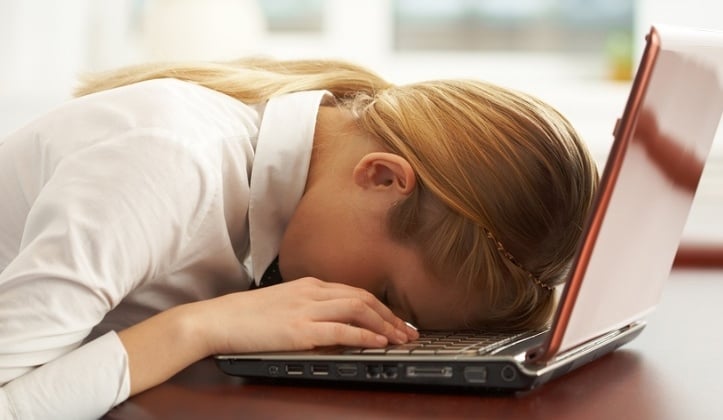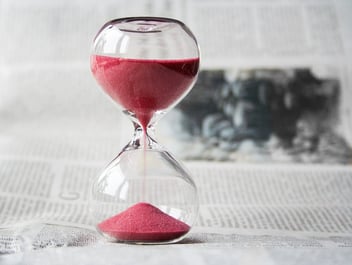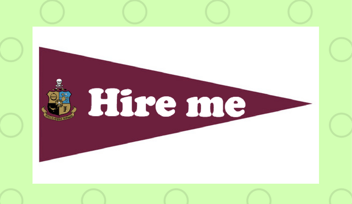How Ditching Your Coffee Habit Can Improve Your Energy & Productivity

For a staggering number of office workers, coffee is the lifeblood, the deity that brings productivity. With slumped shoulders, employees go to the java well and return replenished and upright. The coffee maker acts as a social hub for workers to commiserate around.
Everyone drinks it to get the effects of the caffeine it contains: the all-around boost in cognitive performance. Unfortunately, that boost only occurs when you’ve developed a dependency. According to John Hopkins University, “caffeine-related performance improvement is nonexistent without caffeine withdrawal.” Really, that boost is only bringing you back to normal until the effects wear off, at which point you must return to the well.
The effects of adrenaline, a byproduct of caffeine consumption, make expressing proper emotional intelligence difficult. Emotional Intelligence (EQ) is a somewhat recent addition to the lexicon of human characteristics, but it’s something employers are beginning to value higher than IQ. In short, Emotional Intelligence is the ability to recognize emotions in others and to express your own properly.
Adrenaline is associated with the fight-or-flight response, which will be great when the day finally comes that your office hosts a running of the bulls. Until then, it’s only harming your emotional intelligence, making it more difficult to think calmly and rationally and to interact with your coworkers in a healthy way. Additionally, it’s difficult to make friends with coworkers when your body is too worried about fending off predators. Studies show that the more friends you make at work, the happier of an employee you are.
Creativity is another potential casualty of caffeine consumption. For example, I don’t drink coffee and look how well-executed the alliteration in that last sentence was. You’re welcome, world! Anyway, Maria Konnikova wrote an
interesting piece for the New Yorker discussing caffeine’s effects on creativity. Creativity is not a concept that can be easily measured by scientific study, but the logic Konnikova uses is worth considering.
“...Still, we do know that much of what we associate with creativity—whether writing a sonnet or a mathematical proof—has to do with the ability to link ideas, entities, and concepts in novel ways. This ability depends in part on the very thing that caffeine seeks to prevent: a wandering, unfocused mind.”
She goes on to examine caffeine’s negative effects on healthy sleep cycles, constructive thinking, and the ability to cope with stress.
Coffee’s association with productivity might just be an image thing. It’s been romanticized as the drink of choice for writers of the next great work of literature or the next mind-blowing line of code. At best it’s a placebo and at worst it’s a handicap.
So what should you drink instead? A study cited by Men’s Health says booze. The study concluded that individuals with a blood alcohol content of .075 solved problems more quickly, accurately and creatively.
Coauthor of the study, Jennifer Wiley, Ph.D., says, “Alcohol manipulates focus. If you’re doing taxes—not such a good thing. But when it comes to puzzles or ‘out-of-the-box’ tasks, relaxation and flexibility—what you’re feeling after a few drinks—can spark creativity. You’re more likely to let your mind wander.”
For many, drinking alcohol at work is grounds for termination. So sadly, this solution won’t be a universal one. Until that day comes, a good place to start would be to get rid of the caffeine dependency. If you’ve been in the throes of the caffeine withdrawal/replenishment cycle for a while, the process of kicking it can take up to a few weeks and can make you feel cranky, tired, and give you headaches. But making the process a gradual one with incremental adjustments can minimize these symptoms.
Replacing coffee with a healthier alternative can be an effective way to battle the withdrawal. For example, herbal teas are full of antioxidants and B vitamins that will help boost energy without the aid of caffeine. Other options are kombucha, hot apple cider, and coconut water.
Once free from having to kneel at the feet of the coffee pot every morning, you can become a calmer, more effective member of the team.
About the Author: Reed Parker is a web writer from Boise, Idaho. He enjoys playing banjo and telling bad jokes. He once stayed up all night waiting for the sun. Then it dawned on him.
About Workbar:
Workbar operates coworking locations throughout greater Boston (Boston Back Bay, Boston South Station, Burlington, Cambridge, Arlington, Brighton, Danvers, Norwood, Salem) and several other partner locations throughout the state. Want to keep up with the world of Workbar? Subscribe to our mailing list for the most up-to-date information about our upcoming events and community news. You can also follow us on Instagram, Facebook, LinkedIn and Twitter.


